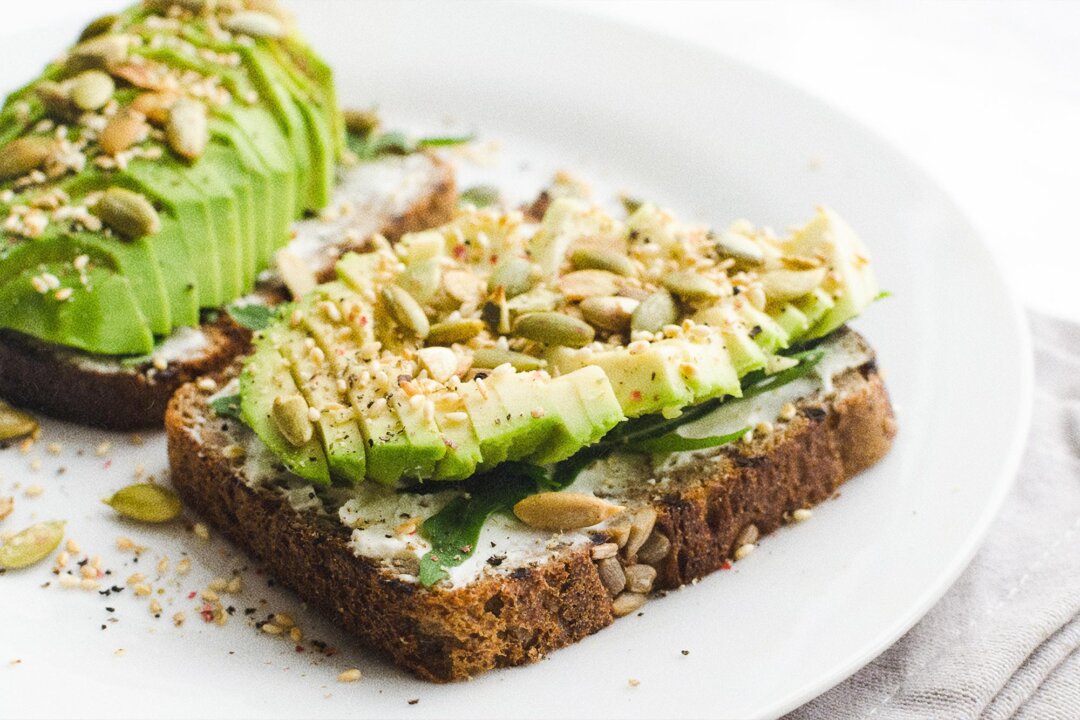Eggs are a versatile, protein-rich food and a staple of the classic American breakfast. Whether scrambled or hard-boiled these nutrient powerhouses offer impressive benefits. But sometimes, cracking an egg is one step too many during a busy morning.
Liquid pasteurized eggs are a convenient alternative to fresh eggs. These days, they may also be the more accessible and budget-friendly option. As egg prices remain high across the United States due to an which has hit the domestic egg supply, affordable fresh eggs are flying off shelves.

The " " has led to shortages and even prompted stores to impose purchase limits. What about those boxes of liquid eggs that tend to be left after the fresh eggs are picked over? They have a similar nutrition profile and are hassle-free. But if you've never used liquid eggs before, you may be hesitant to eggs-plore these options.
What are liquid eggs? Are they just as healthy, or healthier, than fresh eggs? We spoke to dietitians about the benefits and downsides of liquid pasteurized eggs and the healthiest types. “Liquid eggs are real eggs,” says Natalie Rizzo, registered dietitian and TODAY.com nutrition editor.
"They are eggs that have been cracked and packaged," Rizzo adds. A two-pound (32 oz.) box of liquid pasteurized eggs contains the equivalent of 16–18 large whole shell eggs.
These are often mixed to combine the yolk and whites. Liquid eggs are pasteurized, says Rizzo. The requires all egg products outside of the shell to go through the pasteurization process.
This involves heating the raw liquid eggs to a high enough temperature to kill harmful bacteria while avoiding cooking the eggs. (In the U.S.
, most shell eggs are not pasteurized.) Pasteurized liquid eggs also contain added citric acid to keep them fresh, Rizzo notes. The citric acid also helps preserve the color and enhance the flavor of liquid eggs, Yasi Ansari, registered dietitian and spokesperson for the Academy of Nutrition and Dietetics, tells TODAY.
com. Some liquid eggs contain stabilizers or preservatives, such as nisin. In addition to liquid whole eggs, there are liquid egg whites and liquid egg substitutes (aka egg beaters), Ansari says.
Liquid egg substitutes are typically made from egg whites plus additives and flavorings to mimic the texture and taste of whole beaten eggs. Removing the yolks means these egg substitutes have no cholesterol and fewer calories, but also fewer nutrients — so they are often enriched with vitamins and minerals, says Ansari. “A three-tablespoon serving (of liquid eggs) has virtually the same nutrition as one large egg,” says Rizzo.
One serving of the typical store-bought liquid whole eggs contains the following, : Whole liquid eggs are a good source of protein and healthy fats, as well as micronutrients, Ansari notes. "Liquid eggs are good for you," says Rizzo. Just like shell eggs, liquid pasteurized when eaten in moderation and as part of a balanced diet.
Whole liquid eggs are a good source of high-quality protein and health-boosting vitamins and minerals. These include vitamins A and D, B vitamins, choline, calcium, selenium and phosphorus. "These support your memory, your muscles, mood, heart, and energy production, and more," says Ansari.
Eggs contain , a B vitamin helps with cell growth and prevents neural tube defects in a developing fetus, Ansari adds. While egg yolks do contain saturated fat and cholesterol, they're also a good source of beneficial omega-3 and -6 fatty acids, TODAY.com previously reported.
“I always advise to eat the whole egg, rather than egg whites, because most of the nutrition is found in the yolk,” says Rizzo. Egg yolks are one of the few foods naturally rich in , which is important for bone health and and immune function. The yolks are also rich in , which helps our body turn food into energy and supports healthy skin and hair.
"Choline, which we find primarily in egg yolks, is important when it comes to our liver health, metabolism and our nervous system functioning," Ansari notes. Whole liquid eggs also contain antioxidants, such as zeaxanthin and lutein, which help protect eye health, Ansari adds. The citric acid added to keep liquid eggs fresh “is not a cause for concern,” says Rizzo.
"Liquid eggs and (fresh) eggs are practically the same, the nutrition is basically identical," says Rizzo. They're both healthy options. However, fresh shell eggs are often considered slightly healthier because they're a whole, minimally processed food, which the experts always recommend.
Fresh eggs labeled “grade AA” are the highest quality, . Liquid eggs — even if they're 100% whole eggs — are more processed because they've been cracked, pasteurized and mixed with citric acid before being packaged. But they're still nutritious, Ansari adds.
Whole liquid eggs are considered healthier than liquid egg whites or egg substitutes, the experts note. What about food safety? Fresh eggs in shells are perishable and may contain salmonella, a bacteria that can cause food-borne illness, . That’s why raw eggs should be cooked to an internal temperature of 165 degrees Fahrenheit.
The pasteurization process removes bacteria, making liquid egg products safer to consume undercooked than fresh shell eggs. Ultimately, it boils down to personal preference, the experts say. While both can be delicious, some people prefer the flavor and texture of freshly-cracked eggs over liquid eggs.
However, due to the high demand for fresh eggs, liquid eggs may be more cost-effective, says Ansari. They're also a great option for people who have difficulty cracking eggs or are short on time. “If you are reaching for liquid eggs because they make eating eggs easier for you and are more convenient, that’s a win,” Ansari adds.
Some liquid egg products are healthier than others. When choosing liquid eggs, look for the following: Always choose pasteurized liquid eggs with "100% whole eggs," which often have more nutrients and are less processed, the experts note. Look for the on the packaging.
If possible, opt for liquid eggs from pasture-raised hens, which may have a higher omega-3 fatty acid content, . On the nutrition label, look for liquid eggs made with eggs and citric acid. "Watch out for any other ingredients, like sodium or flavorings — these are unnecessary and should be avoided," says Rizzo.
Liquid eggs can be used in place of shell eggs in most recipes, from breakfast classics to baked goods. The include boiling, poaching or scrambling using a , such as olive oil. The experts recommend pairing eggs with fiber-rich vegetables, fruits, legumes or whole grains.
"You can make egg muffins and add your favorite vegetables and cheese, and these last for up to three days in the fridge!" says Ansari. Caroline Kee is a health reporter at TODAY based in New York City. She covers a range of medical news, consumer health, and wellness topics.
.
Health

Are liquid eggs as healthy as real eggs? Dietitians explain the difference

Liquid eggs are a convenient and often longer-lasting alternative to fresh, shell eggs. What are liquid eggs and are they healthy? Dietitians weigh in.















